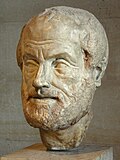Waking up early: Difference between revisions
Reverted to 24 July version. |
Added criticism |
||
| Line 19: | Line 19: | ||
[[Dave Cheong]] has also enumerated tips for waking up early, including getting enough sleep, going to bed early, and jumping out of bed. |
[[Dave Cheong]] has also enumerated tips for waking up early, including getting enough sleep, going to bed early, and jumping out of bed. |
||
==Criticism== |
|||
[[James Thurber]], in his book ''Fables for our Time'', ended the Fable of the Shrike:<ref>{{cite book |
|||
|last=Thurber|first=James |
|||
|authorlink=James Thurber |
|||
|publisher=[[HarperCollins]] |
|||
|edition=Rei Ill |
|||
|date=31 Mar 1983 |
|||
|isbn=978-0060909994 |
|||
|title=Fables for our time |
|||
|illustrator=[[James Thurbur]] |
|||
}}</ref> |
|||
{{quote|Early to rise and early to bed, makes a Shrike healthy, and wealthy, and dead.}} |
|||
==References and external links== |
==References and external links== |
||
| Line 33: | Line 46: | ||
*[http://books.google.com/books/pdf/Early_to_Bed__and_Early_to_Rise__Makes_a.pdf?id=oLkOAAAAIAAJ&output=pdf&sig=5KU_0tOtO6vswn49YfDKX9XdzJE Early to Rise by Benjamin Franklin -- Google books] - pdf copy |
*[http://books.google.com/books/pdf/Early_to_Bed__and_Early_to_Rise__Makes_a.pdf?id=oLkOAAAAIAAJ&output=pdf&sig=5KU_0tOtO6vswn49YfDKX9XdzJE Early to Rise by Benjamin Franklin -- Google books] - pdf copy |
||
* [http://www.islamfortoday.com/fajr.htm Our Fajr double advantage], on waking up early in Islam |
* [http://www.islamfortoday.com/fajr.htm Our Fajr double advantage], on waking up early in Islam |
||
{{reflist}} |
|||
[[Category:Personal development]] |
[[Category:Personal development]] |
||
Revision as of 02:14, 1 May 2009

Waking up early is a productivity method of rising early and consistently so as to be able to accomplish more during the day. This method has been recommended since antiquity and is presently recommended by a number of personal development gurus. Benjamin Franklin wrote a book entitled Early rising: Natural, Social and Religious Duty.
Within the context of religious observances, spiritual writers have called this practice "the heroic minute," referring to the sacrifice that this entails.
Personal development writers have noted that waking up early can be developed through practice and correct preparation.
Background
Aristotle has already advised that "It is well to be up before daybreak, for such habits contribute to health, wealth, and wisdom."

Benjamin Franklin is quoted to have said: "Early to bed, early to rise, makes a man healthy, wealthy and wise." It is a saying that is viewed as a commonsensical proverb. He is also quoted as saying: "The early morning has gold in its mouth."
The writer Steve Pavlina has commented on the "high correlation between success and rising early." Some advantages of early rising are: easier commute due to less traffic, more quietude to perform tasks, more time to prepare the day, less anxious beginning and more serenity. St. Josemaria Escriva wrote: "The heroic minute. It is the time fixed for getting up. Without hesitation: a supernatural reflection and... up! The heroic minute: here you have a mortification that strengthens your will and does no harm to your body." He said that virtue has to be orderly and that waking up at a fixed time enables a person to fulfill a Christian plan of life involving prayers, study and work.
Techniques for waking up early
Steve Pavlina has written a number of articles on this topic. He recommends getting up at the same time everyday and not going to bed until the body is truly sleepy.
Dave Cheong has also enumerated tips for waking up early, including getting enough sleep, going to bed early, and jumping out of bed.
Criticism
James Thurber, in his book Fables for our Time, ended the Fable of the Shrike:[1]
Early to rise and early to bed, makes a Shrike healthy, and wealthy, and dead.
References and external links
- Waking up early: 15 tips that work
- Turn yourself into a early riser
- Howtowakeupearly.com
- Practice waking up
- How to wake up early - Wikihow
- How to become an early rise - Steve Pavlina
- How to wake up feeling totally alert - Steve Pavlina
- How to wake up right away when your alarm goes off - Steve Pavlina
- 10 benefits of rising early, and how to do it
- In the homes of holy families
- Early to Rise by Benjamin Franklin -- Google books - pdf copy
- Our Fajr double advantage, on waking up early in Islam
- ^ Thurber, James (31 Mar 1983). Fables for our time (Rei Ill ed.). HarperCollins. ISBN 978-0060909994.
{{cite book}}: Unknown parameter|illustrator=ignored (help)
